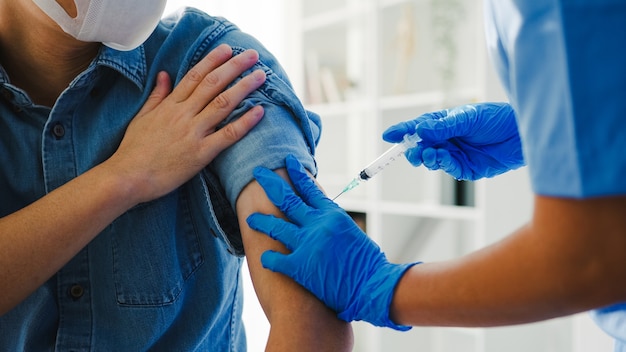In a bold public health move, Massachusetts has taken unprecedented steps to ensure broad protection against COVID-19 by expanding access to booster shots for nearly its entire population. With a new regulatory directive, the state now allows pharmacies and healthcare providers to administer COVID boosters to every resident aged 5 and older—effectively treating the vaccine as a universally recommended preventive measure.
This policy shift signifies more than just a logistical update—it represents a proactive stance in the ongoing effort to manage the virus as a persistent public health concern. By removing previous eligibility restrictions and ensuring insurance coverage, Massachusetts is setting a benchmark for equitable and accessible care.
While governors don’t literally write prescriptions, the recent actions by Massachusetts leadership have had the same practical effect. The state’s health department issued a standing order authorizing all licensed pharmacists to administer COVID-19 boosters to individuals aged 5 and up. This means children as young as five can now receive updated boosters without needing a prior doctor’s visit or individual prescription.
The decision streamlines access during a time when vaccination rates have plateaued and public attention has waned. By treating the booster like a routine immunization—similar to the flu shot—the state aims to normalize uptake and reduce preventable infections, especially as new variants continue to circulate.

Community pharmacies are now key players in delivering boosters to children and adults alike.
One of the most impactful aspects of the policy is the assurance of cost coverage. The state has coordinated with insurers to ensure that all Massachusetts residents—regardless of income or insurance status—can receive the booster at no out-of-pocket cost. For uninsured individuals, federal programs and state health funds will cover administration fees.
This financial safeguard removes a major barrier to vaccination, particularly for low-income families and marginalized communities who have historically faced disparities in healthcare access. The move aligns with broader equity goals, aiming to close immunization gaps that emerged during earlier phases of the pandemic.
Extending eligibility to children as young as five is grounded in evolving scientific understanding. Clinical data shows that while children generally experience milder symptoms, they can still transmit the virus and, in rare cases, develop serious complications such as multisystem inflammatory syndrome (MIS-C).
Moreover, regular vaccination helps protect vulnerable family members, including elderly relatives or those with compromised immune systems. By including younger children in the booster program, Massachusetts strengthens community-wide immunity and reduces the risk of future surges.

Vaccinating children helps protect the broader community and supports uninterrupted schooling.
While federal guidelines from the CDC already recommend updated boosters for everyone aged 6 months and older, actual access varies widely across states. Massachusetts’ standing order removes ambiguity and empowers pharmacists—trusted healthcare providers in local communities—to act decisively.
Other states are watching closely. With vaccine hesitancy and misinformation still influencing public behavior, Massachusetts’ approach offers a template for how state governments can take ownership of public health outcomes. Clear messaging, logistical support, and financial backing are proving essential in turning recommendations into real-world protection.
The success of this initiative will depend on sustained public education and outreach. Health officials are launching multilingual campaigns to inform families about the availability, safety, and importance of boosters. School-based clinics and mobile vaccination units are being deployed to reach underserved areas.
Long-term, this policy could influence how the U.S. manages respiratory viruses. Treating COVID-19 boosters as routine, much like annual flu shots, may become the new standard—especially if the virus continues to evolve and require updated formulations.
Massachusetts’ bold step reflects a shift from emergency response to sustainable prevention. It’s a reminder that public health works best when access is universal, equitable, and uncomplicated.

Health

Health

Health

Health

Health

Health

Health

Health

Health

Health

Fitness

Health

Health